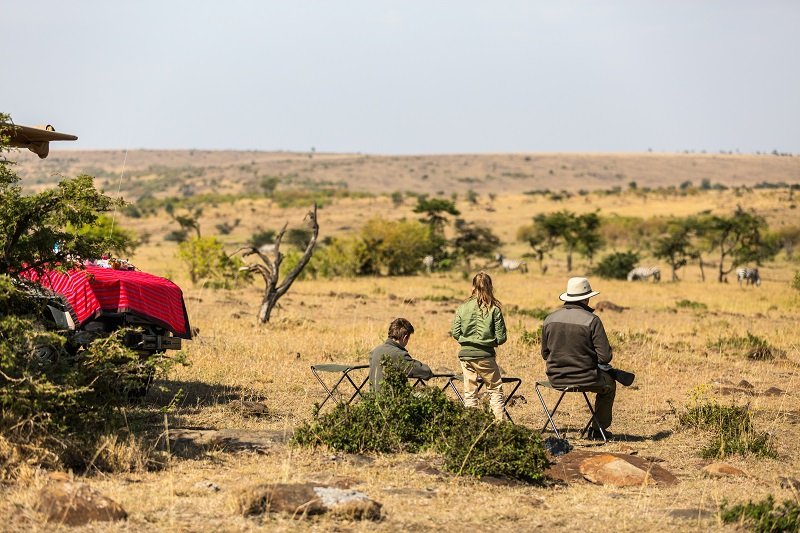Before Your Safari
- Manage Expectations: Discuss patience with your children, explaining that wildlife sightings may require waiting.
- Build Anticipation: Get your kids excited about wildlife and what they might see on the safari.
- Health Precautions: Ensure all family members take anti-malaria medication and sleep under mosquito nets.
- Age Restrictions: While most Kenyan safaris don’t have age limits, always check for any restrictions at specific destinations or facilities.
During the Safari
- Game Drive Duration: Keep game drives shorter for children. Be prepared to end early if kids get tired.
- Sleeping Children: If kids fall asleep during drives, let them rest, even if you spot exciting wildlife.
- Photography for Kids: Consider giving children their own cameras to keep them engaged and create personal memories.
- Safety First: Keep children close, as small kids can look like prey to wild animals.
- Bathroom Breaks: Ensure kids use the restroom before game drives and when traveling between destinations.
- Sensitive Topics: Be prepared to discuss mating or hunting behaviors you might witness.
- Quiet Observation: Teach children to sit still and remain quiet to avoid disturbing animals.
- Beyond the Big 5: Encourage interest in smaller animals and birds, not just the famous Big 5.
- Entertainment on Drives: Bring books, sketchpads, or journals for kids to use during quieter moments.
Frequently Asked Questions (FAQs)
- Q: What is the best age to take children on a Kenyan safari?
A: While there’s no perfect age, most safari operators recommend children be at least 6-8 years old. At this age, they can better appreciate the experience and follow safety instructions. - Q: Are safaris safe for children?
A: Yes, when proper precautions are taken. Stay in vehicles during game drives, follow guide instructions, and keep children supervised in camp areas. - Q: What should I pack for my child on a safari?
A: Essential items include:- Comfortable, neutral-colored clothing
- Sun protection (hat, sunscreen, sunglasses)
- Insect repellent
- Binoculars
- A small backpack for personal items
- Favorite snacks
- A reusable water bottle
- Q: How can I keep my kids entertained during long drives?
A: Bring books about African wildlife, create a safari scavenger hunt, or encourage them to keep a safari journal. Many lodges also offer kid-friendly activities between game drives. - Q: Are there family-friendly accommodations in Kenya?
A: Yes, many lodges and camps cater to families with larger tents or interconnected rooms, child-friendly menus, and activities designed for young visitors. - Q: What if my child gets sick during the safari?
A: Choose a tour operator with emergency protocols. Many safari lodges have on-site medical staff or connections to nearby clinics. Always travel with basic medications and your child’s health information. - Q: Can we interact with animals during a safari?
A: Direct interaction with wild animals is not allowed for safety reasons. However, some conservancies offer educational programs where children can learn about wildlife care and conservation efforts. - Q: How long should a family safari be?
A: For families with younger children, a 5-7 day safari is often ideal. This provides enough time to see wildlife without overwhelming kids with too many long drives.
Remember, a family safari can be an incredible, educational experience for children. With proper planning and a flexible attitude, it can create lasting memories for the whole family.


0 Comment